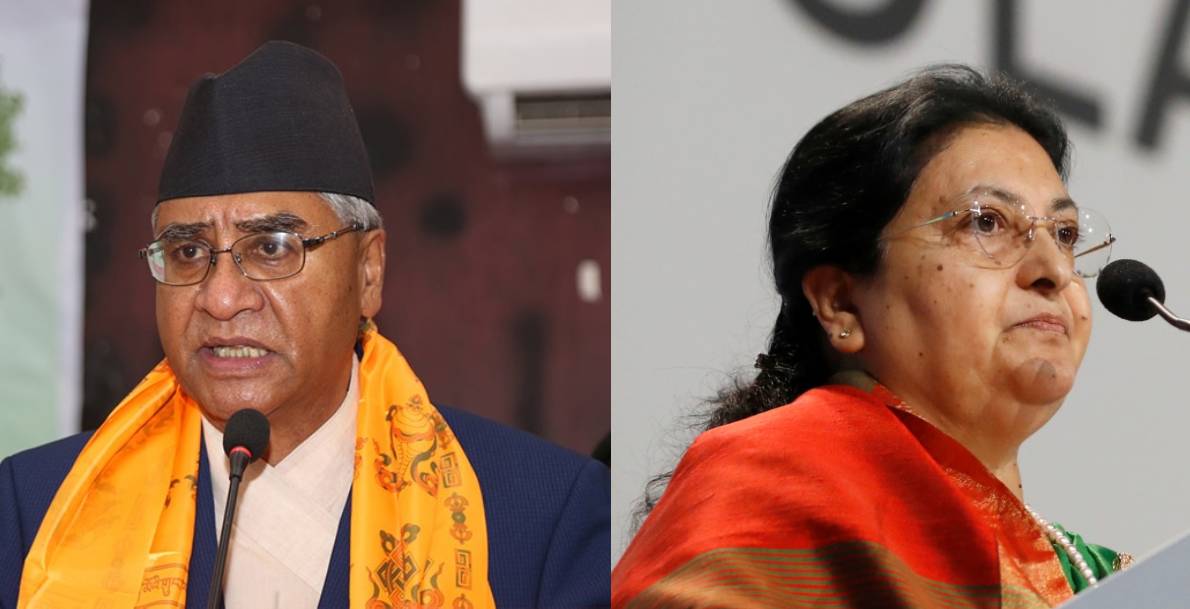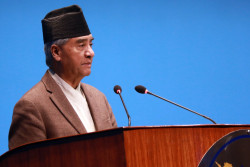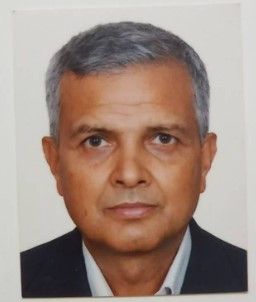Opinion

Nepal is a test case in South Asia where democracy always remains fragile and frequently suffers due to the authoritarian behaviour of politicians who often tend to cross the constitutional red line. Once in power, leaders consider themselves the boss and the people their subordinates. In principle, democracy is a system where people are the boss while the leaders and parties are there only to serve the people.
As Rousseau said in The Social Contract, the government is the contract between rulers (in the modern sense, parties) and the people. Parties or politicians make contract with the people to act in the larger interest of the people.
Recently, a debate has been raging on in the political circle of Nepal and at the citizenry level on the role and authority of the President, especially when the President refused to authenticate the citizenship bill passed by the Parliament a second time.
The Article of the Constitution of Nepal states, “In case any Bill is sent back along with a message by the President, and both Houses reconsider and adopt such Bill as it was or with amendments and present it again, the President shall authenticate that Bill within fifteen days of such presentation.”
In the words of former prime minister of India Jawaharlal Nehru, the president ‘neither reigns nor governs' implying that the president has only a ceremonial role and is obliged to do what the government says. There are several instances of a row between the president and prime ministers on the role and rights of the president in the world. Once the tenth president of India KR Narayanan returned the proposal of the government to impose direct rule in Utter Pradesh, stating that the president ‘was not a rubber stamp’.
Democracy: The loser
The conflict between the government and the president is an ominous sign for the future of our democracy. In the chequered history of Nepal, whenever the head of state and the head of government remained at odds, democracy paid the price.
The personality cult and power clash between King Mahendra and democratically elected Prime Minister BP Koirala was primarily responsible for the political disaster of 1960 in Nepal that pushed the country into three decades of the dark era of tyranny under the façade of Panchayat.
In the 1991 general elections held after the restoration of democracy, the Nepali Congress won a comfortable majority and formed the government headed by Girija Prasad Koirala. However, the intra-party clash and conflict within the Nepali Congress solely for power grabbing within the party and in the government led to the snap polls. In the clash between GP Koirala and Ganeshman Singh, Koirala prevailed but the Nepali Congress party lost.
In the subsequent election held in 1994, the Congress was defeated at the hands of its rival, Communist Party of Nepal – United Marxist–Leninist. This is the point that sowed the seeds of a new phase of political instability from which king Gyanendra took over power. He went on to sack the legitimate prime minister to impose his absolute rule even as the Maoists emerged in a lightning speed. Democracy suffered a blow at the hands of the head of state.
King Gyanendra’s action proved to be fatal to himself as it paved the way for otherwise hostile parties to come together along with the insurgent Maoists on two key agenda: abolition of the tyrannical monarchy and election for a constituent assembly to write Nepal's new constitution. In the election held for the constituent assembly, the Maoists emerged as the largest party but fell short of a majority and formed a government with support from other parties. The conflict between the Prime Minister and President over the issue of the sacking of the army chief took its toll on the politics of Nepal, thereby forcing Prime Minister Puspa Kamal Dahal ‘Prachanda’ to step down. That in turn sowed the seeds of distrust and clash among the parties contributing to another cycle of uncertainty.
Violation of Constitutional limits
The conflict between the head of state and the head of the government has always been the main cause of political mishaps in Nepal. Now the president has definitely crossed the red line of the Constitution, but a section of the society hails her refusal to acquiesce to the Citizenship Bill as motivated by larger interest of the country. Citizenship Bill is definitely an important issue on which a consensus among at least major political parties is necessary.
The country has to have its citizenship policy. Citizenship policy and citizenship laws have a direct and strong bearing on national security and sovereignty. Nepal appears not to have a well-defined citizenship policy. Political parties, too, are vacillating on this important issue. Parties' standing on citizenship policy varies when they are in power and when in opposition. This is the fundamental problem and has complicated the issue. Political parties are politicking on the citizenship issue, which is unfortunate. It is now to be seen whether the president's action was guided by her personal ego and the political benefit of her erstwhile party or done in the interest of the country. Only time will tell the truth.
The writer is a former Nepali ambassador to Denmark from 2017 to 2021. He also worked as a journalist for over three decades, including 28 years at The Rising Nepal.






